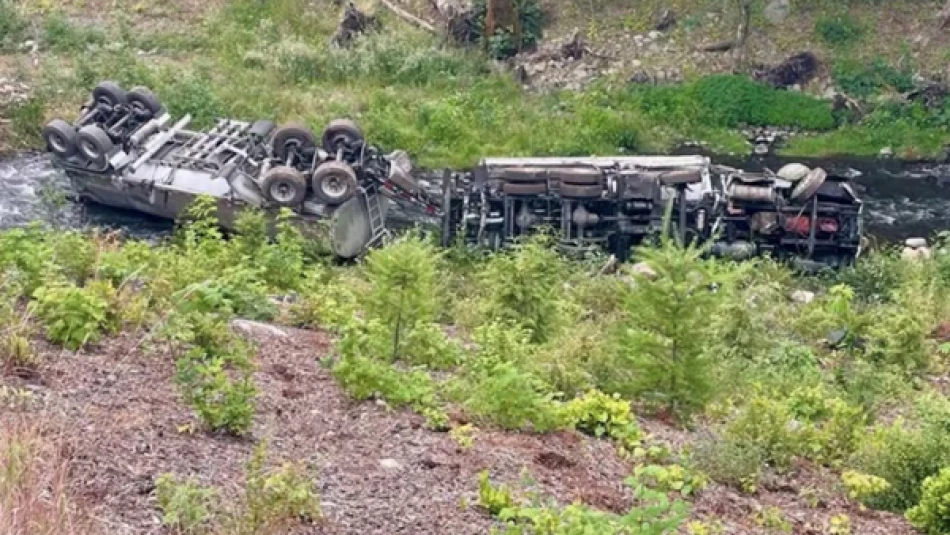
Fuel Truck Crash and Plunge into Washington Waters Sparks Emergency Response
Major Fuel Spill Threatens Washington's Olympic Peninsula Waters After Highway Truck Crash
A fuel tanker carrying 10,000 gallons of diesel and gasoline crashed into a waterway on Washington's Olympic Peninsula Friday, creating an environmental emergency as crews scramble to contain petroleum products flowing into Indian Creek, a tributary feeding the region's pristine river systems. The incident highlights ongoing risks posed by heavy fuel transport through ecologically sensitive areas.
Scale of the Environmental Threat
The overturned tanker was transporting 6,000 gallons of diesel and 4,000 gallons of gasoline when it left Highway 101 and plunged into Indian Creek. Governor Bob Ferguson's office confirmed the spill Friday evening but has not yet determined how much fuel escaped into the waterway—a critical factor in assessing long-term environmental damage.
Photos released by Washington State Department of Transportation show the massive truck completely overturned in the creek bed, surrounded by emergency response vehicles working to establish containment barriers.
Why This Location Makes the Spill Particularly Dangerous
Olympic Peninsula's Fragile Ecosystem
The Olympic Peninsula represents one of the Pacific Northwest's most biodiverse regions, home to endangered salmon runs, old-growth forests, and pristine watersheds that feed into Puget Sound. Any petroleum contamination in these tributaries can cascade through the entire ecosystem, affecting fish spawning grounds and drinking water supplies for downstream communities.
Highway 101: A Critical but Risky Transport Route
Highway 101 serves as the primary artery for fuel deliveries to remote Olympic Peninsula communities, but its winding mountain roads and proximity to waterways create inherent risks. This crash underscores the environmental trade-offs of maintaining fuel supplies to isolated regions versus protecting sensitive habitats.
Response Efforts and Containment Challenges
Emergency crews face significant logistical hurdles in this remote location. Effective fuel spill containment typically requires rapid deployment of absorbent booms and specialized equipment—resources that may take hours to reach the crash site given the Peninsula's limited infrastructure.
The timing also complicates cleanup efforts, as winter weather patterns can accelerate fuel dispersion through increased water flow and make recovery operations more dangerous for response teams.
Broader Implications for Fuel Transport Policy
This incident arrives as Washington State grapples with balancing environmental protection against energy infrastructure needs. Similar spills in ecologically sensitive areas have prompted other states to mandate double-hulled tankers or restrict heavy fuel transport during peak wildlife migration periods.
The spill may also reignite debates over alternative fuel delivery methods for remote communities, including pipeline infrastructure or increased use of rail transport—each carrying their own environmental and safety considerations.
As containment efforts continue, the incident serves as a stark reminder of the environmental costs embedded in America's fuel distribution network, particularly in regions where pristine ecosystems intersect with critical transportation corridors.
Most Viewed News

 Layla Al Mansoori
Layla Al Mansoori






